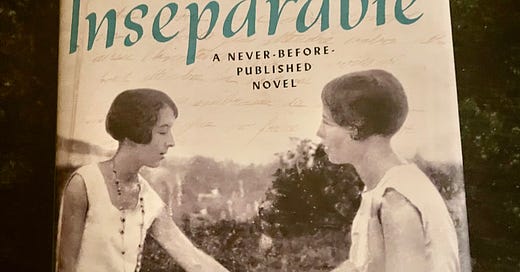Simone de Beauvoir was the epitome of the post-WWII French intellectual. Besides being a political activist and social theorist, she was the author of The Second Sex, a foundational tract for contemporary feminism. In short, SDB was a complex, multifaceted thinker whose opinions and writing went on to influence so many.
So it is difficult to square that lofty reputation with the recent publication of “Inseparable,” a novel she wrote in 1954. It’s the semi-autobiographical tale of her childhood friendship with Zaza, whom she loved as a second sister until adulthood.
Unfortunately, “Inseparable” is pretty damned insipid.
Zaza, called Andree in the book, was the daughter of strict, wealthy Catholic parents who micromanaged her young life to the point of choosing her friends and potential marriage partners. They especially did not approve of Sylvie (the young Simone in the novel) as they feared her outspokenness and nascent atheism were bad influences on their daughter.
Perhaps adoring critics see the Sylvie character in “Inseparable” as proto-feminist. Somehow, I missed that. And I’m not alone. Jean-Paul Sartre, her partner of 51 years, read the draft back in the 1950s and dismissed it as a trifle. After finishing this slight head-scratcher of a novel, I would regretfully agree.
Actually, the best part of “Inseparable” is the hilarious preface by Margaret Atwood, who worshipped the existentialist gals (“with their black turtlenecks and heavy eye liners”). Once she arrived in Paris and actually met them, however, she realized that as a North American, she had more freedom than a Frenchwoman.
But even a brilliant preface by Atwood can’t save a mediocre novel by DeBeauvoir. C’est la vie.



